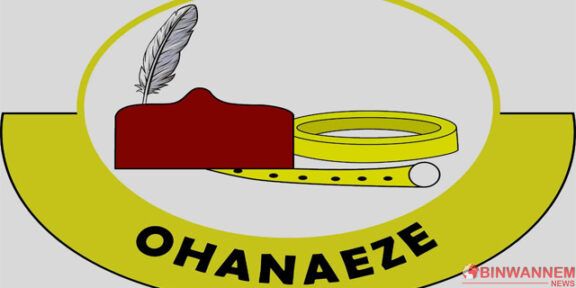A report by Africa Education Watch, policy research, and advocacy organizations has revealed that the online monitoring embarked by them proved the growing incidence of a highly organized examination malpractice syndicate and its normalization as a culture in many schools.
The report disclosed that stakeholders include students, teachers, heads of schools, parents, WAEC supervisors, invigilators, and security officials.
The report added that the collective role of these stakeholders involved mobilizing cash from students one-month prior to commencement of examinations, securing and solving questions for students through school WhatsApp platforms ahead of papers.
The report also identified the provision of security to enable cheating in examination centres, permitting the use of mobile phones in examination centres to openly dictating answers to students in some centres.
Aside from these things, the online monitoring also affirmed previous findings in the 2020/WASSCE suggesting a multi-million business enterprise built on leakage question papers from uncertain sources and marketed to students, teachers, and school owners using Telegram, a social media platform that operates without a sim card or a static IP address making it virtually impossible to track.
The report identified 20 of such platforms with a combined subscription of over 200,000 members with questions sold between Ghc30 and Ghc150 per paper.
The report covers the monitoring of twenty papers in 50 purposely sampled examination centres during the WASSCE 2021.
According to the report, questions were leaked through various rogue social media platforms on telegram between one to one hundred and six hours i.e five days before the examinations started.
Eleven of the papers were confirmed to be actual question papers that were written, while the remaining nine were fake circulations.
The eleven confirmed papers were Foods and Nutrition 3 “Practical”, Further MATHEMATICS “Elective Mathematics” 2, EnglishLanguage 2, Physics 2, Biology 3 “Practical Alternative A”, Core Mathematics 1, Core Mathematics 2, Economics 2, Chemistry 1, Integrated Science 1, Integrated Science 2.
The report said: ”The online leakage manifested at the school level, as some students in all schools monitored had foreknowledge of the eleven ’11’ papers which were sold on social media platforms hours prior.
In addition, English and Social Studies written questions from the National Board for Professional and Technician Examinations “NABPTEX” examination conducted by the Commission for Technical and Vocational Education and Training “CTVET” for Technical Institutes at the pre-tertiary level also leaked on the telegram platforms.
The report lays bare the high-stakes nature of our pre-tertiary external assessment system, where one can be deemed ‘a failure’ based on a 90-minute test after fourteen ’14’ years of schooling as a key driver of the demand for questions and examination malpractices, as candidates must pass at all cost.
Also, the high cost of remedial schooling which is only available in the private sector for only parents who can afford, is partly accountable for the commitment of candidates, mostly backed by their parents to purchase phones and questions, pay for compromised invigilation, and pass at the first attempt.
It again identifies the increased competition for pride among schools through WASSCE Ranking “League Table” and Key Performance Indicators for school heads as potential motivation for institutionalized cheating during the WASSCE, while acknowledging the universalized use of mobile phones in schools and access to social media by students “especially telegram and WhatsApp” as conduits for accessing the questions markets and answers.
In addition to the demand factors, and its facilitators, the major supply drivers remain the existence of consistent security gaps in WAEC questions supply chain which has culminated in a multi-million-cedi subsidiary industry – the ‘apo’ market, courtesy a telegram platform that could host over 200,000 subscribers for marketing.
The business interests of the secret architects and engineers of this fraud, the quest to protect the images of institutions responsible for preventing the rot, and the urge to avoid the economic cost of cancelling papers, continue to motivate the impulsive denial of the existence and severity of what is not only obvious but pervasive by WAEC and the Ghana Education Service “GES”, plus the inertia by Ministry of Education “MoE” over the years, leading to a growth in examination malpractice from a deviant to an institutionalized, well-coordinated and resourced machinery in many schools, with the active involvement of some staff of GES and WAEC’s own external supervisors, backed by a million cedi questions marketing industry.
It concludes that, “examination fraud, if unaddressed, will lead to the devaluation of WAEC’s certificates in the local and international tertiary space and the world of work, and makes recommendations towards the digitization of the questions transmission process by removing the human elements involved in the selection, printing, sorting, packaging, transportation and storage of questions at depots, ahead of examinations, mounting CCTV surveillance systems in and around examination centres and reviewing the over-emphasis on summative assessment or test-based final examinations by increasing the threshold for internal assessment from the current 30%.”
Nwachineke Onyeke Chekwube reporting, Obinwannem news writer/ November 5, 2021














